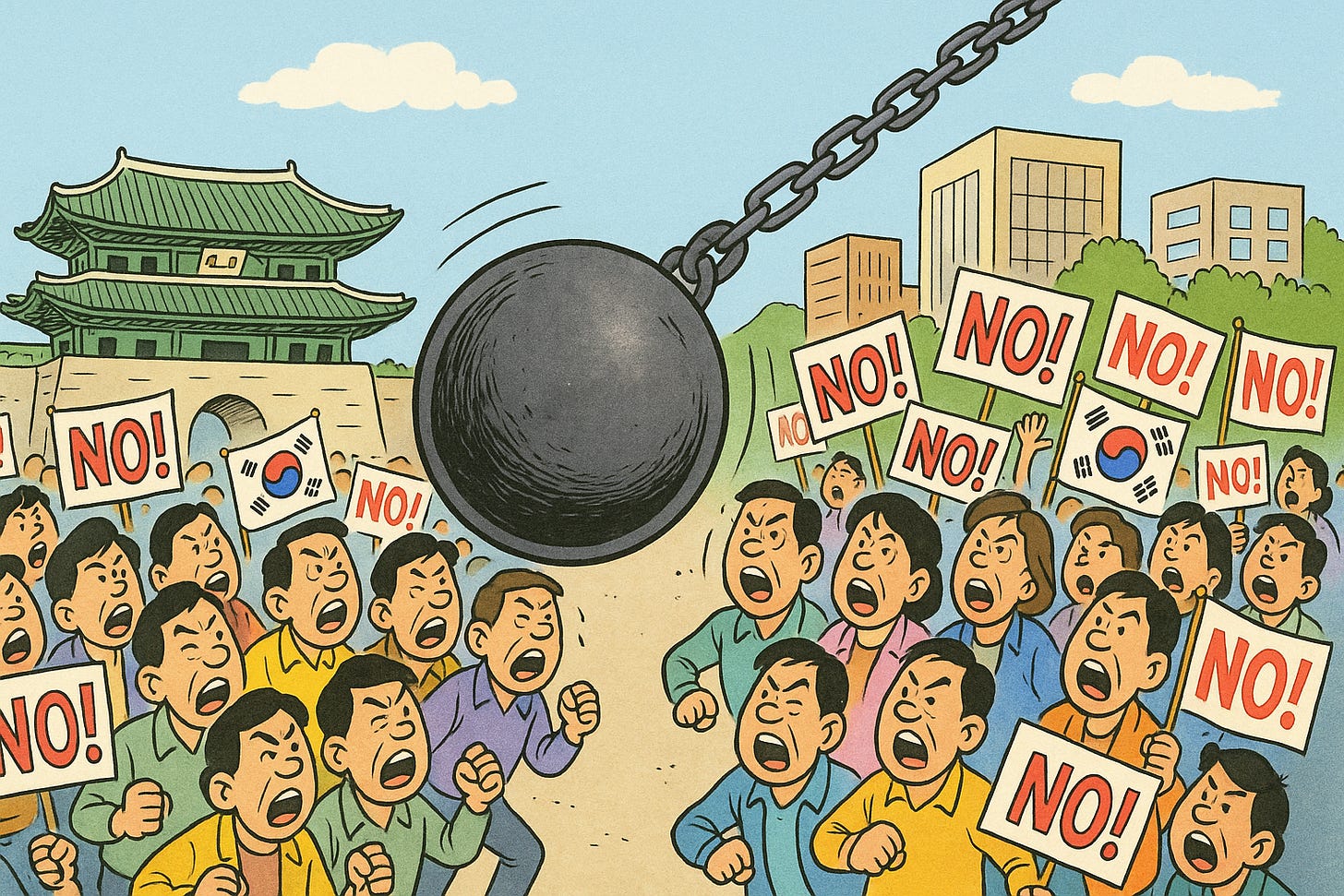Tariffs and an anti-American turn in South Korea
The Yoon Administration’s subservience to the U.S. pushed the pendulum of public opinion to an unparelleled height. Trump's the arc that turns it back.
Anti-American sentiment in South Korea has always lingered just beneath the surface — a low hum that occasionally roars to life when diplomatic friction exposes the asymmetries in the alliance. Whether triggered by military accidents, trade imbalances, or perceived slights, the sense that Washington does not treat Seoul as an equal partner has long been a source of public frustration.
This week’s upcoming tariff negotiations risk stirring those feelings again.
South Korea's Finance Minister Choi Sang-mok and Industry Minister Ahn Duk-geun will meet Treasury Secretary Scott Bessent and U.S. Trade Representative Jamieson Greer for "two plus two" trade consultations - prompted by the imposition and subsequent suspension of "reciprocal" tariffs that impose 25 percent duties on South Korean products entering the U.S.
In diplomacy, where you meet matters. The venue chosen for the South Korea-U.S. talks — the U.S. Treasury Department — is not just a bureaucratic formality. It’s a symbolic demotion. Trade talks that affect the livelihoods of Korean steel workers, semiconductor engineers, and exporters are not being heard at the highest levels of the U.S. government. No Oval Office meeting. No direct involvement from the President. No White House Oval Office press moment.



